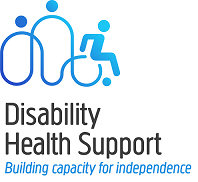Why do I need you?
The average disability healthcare "incident" will involve 3+ doctors, 5+ healthcare providers and 3-7 different locations. This can be confusing, overwhelming and is often characterised by stress, poor communication and a lack of co-ordination. An experienced health professional helping you manage your care knows how to navigate all this and achieve the best results.
The health system works best when patients are well informed, speak up and fend for themselves. When something goes wrong with our disability health care, we are not as likely to complain as we would if we got bad service in a store or restaurant. We may worry that speaking up will undermine our care, offend our health care providers, or interrupt our treatment.
We may be too angry or too intimidated to confront a disability health care provider, especially if we are still receiving interventions from him or her. We may think, “What difference does it make? The problem has already happened. It’s too late to do anything now.” Or we may not have the communication skills or medical knowledge to assert ourselves effectively.
Those concerns are valid and underpin the logic in recruiting us to assist you. We can help you to learn how to negotiate and mediate to achieve the required outcome. Where appropriate, we can intercede and have your management reviewed.
Speaking up and having our voice heard is important because:
What do we actually do?
Following discussion between the client and problems, disability goals, support coordinators, support personnel, strategies are identified. As our journey evolves those goals are reviewed and revised as necessary. It is common for the our relationship to progress through several carefully defined stages that can be either sequenced or concurrent. At every stage our client can decide to take charge themselves and proceed alone or to continue with the assistance of our services.
We guide individuals through the process of documenting an Advance Care Plan.
Advance care planning is a process that enables individuals to make plans about their future health care. Advance care plans provide direction to healthcare professionals when a person is not in a position to either make and/or communicate their own healthcare choices. Advance care planning is applicable to adults at all stages of life.
Participation in advance care planning has been shown to reduce stress and anxiety for patients and their families, and lead to improvements in care.
The main components of advance care planning include the nomination of a substitute decision maker, and the completion of an advance care directive.
The average disability healthcare "incident" will involve 3+ doctors, 5+ healthcare providers and 3-7 different locations. This can be confusing, overwhelming and is often characterised by stress, poor communication and a lack of co-ordination. An experienced health professional helping you manage your care knows how to navigate all this and achieve the best results.
The health system works best when patients are well informed, speak up and fend for themselves. When something goes wrong with our disability health care, we are not as likely to complain as we would if we got bad service in a store or restaurant. We may worry that speaking up will undermine our care, offend our health care providers, or interrupt our treatment.
We may be too angry or too intimidated to confront a disability health care provider, especially if we are still receiving interventions from him or her. We may think, “What difference does it make? The problem has already happened. It’s too late to do anything now.” Or we may not have the communication skills or medical knowledge to assert ourselves effectively.
Those concerns are valid and underpin the logic in recruiting us to assist you. We can help you to learn how to negotiate and mediate to achieve the required outcome. Where appropriate, we can intercede and have your management reviewed.
Speaking up and having our voice heard is important because:
- It can prevent problems from occurring
- action can still be taken to improve the situation
- providers and disability health care professionals respect and respond best to well informed and well supported patients
- action can prevent the problem from escalating (becoming worse)
- assertion and self advocacy becomes a life long skill that strengthens future involvement in health care encounters
What do we actually do?
Following discussion between the client and problems, disability goals, support coordinators, support personnel, strategies are identified. As our journey evolves those goals are reviewed and revised as necessary. It is common for the our relationship to progress through several carefully defined stages that can be either sequenced or concurrent. At every stage our client can decide to take charge themselves and proceed alone or to continue with the assistance of our services.
We guide individuals through the process of documenting an Advance Care Plan.
Advance care planning is a process that enables individuals to make plans about their future health care. Advance care plans provide direction to healthcare professionals when a person is not in a position to either make and/or communicate their own healthcare choices. Advance care planning is applicable to adults at all stages of life.
Participation in advance care planning has been shown to reduce stress and anxiety for patients and their families, and lead to improvements in care.
The main components of advance care planning include the nomination of a substitute decision maker, and the completion of an advance care directive.



